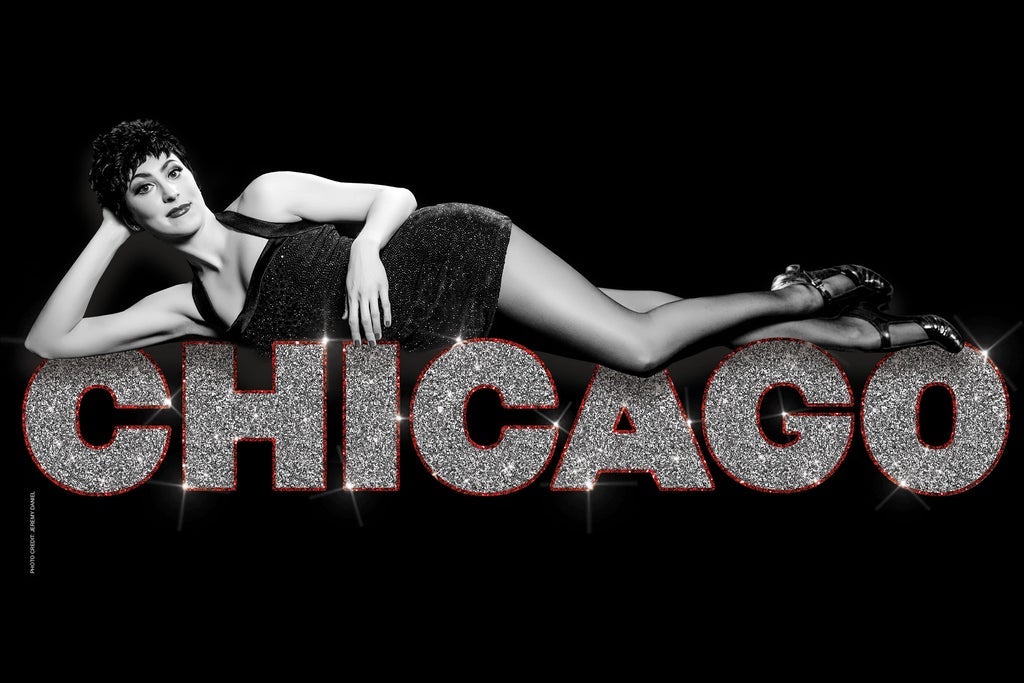Mr. Lloyd's interpretation balances surface elegance with an aching profundity, so that 'Betrayal' becomes less about the anguish of love than of life itself. Specifically, I mean life as lived among people whom we can never truly know. That includes those closest to us; it also includes our own, elusive selves.
Critics' Reviews
Review: Tom Hiddleston in a Love Triangle Undone by ‘Betrayal’
The verbal thrills of Pinter's text arise from the fact that his characters are educated, literary people, well versed in the power of words - and the silences in between them - to attack and humiliate. But what is also revealed by the tightly wound ensemble under Lloyd's guidance is that, despite the play's title, this is also a romantic tragedy, though one played out with carefully restrained emotions. One person's act of Betrayal can be another's act of uncontrolled desire.
Broadway Review: ‘Betrayal’ With Tom Hiddleston
Director Jamie Lloyd's impeccable direction - now on Broadway, after a hot-ticket London run - strips Pinter's 1978 play to its bare bones: the excruciating examination of the slow death of a marriage. It's a daring approach, leaving the characters nowhere to hide. Certainly not in the language, which is so famously spare that even the pauses pulse with unspoken emotion and hidden meaning. And definitely not in the staging, which is the essence of minimalism.
‘Betrayal’ Broadway Review: Tom Hiddleston, Charlie Cox & Zawe Ashton In Pinter’s Affair To Remember
Secret love shacks, or love flats as the case may be, notwithstanding, no affair is an island built for two - there's always at least a third person in the mix, typically considered the betrayed. In Jamie Lloyd's masterful revival of Harold Pinter's Betrayal - one is tempted to call it a reinvention, so deeply and definitely urgent is his take - three of the ever-shifting betrayers and betrayees occupy the stage at all times, one or another bearing silent witness as the other two enact an affair's all-too-familiar scenes of lies, transgressions, excitement and the love that, at least fleetingly, prompts it all.
Tom Hiddleston, Charlie Cox, and Zawe Ashton command a smart, stripped down Betrayal
But as a focused exploration of human duplicity, Betrayal is an unembellished marvel and this Broadway revival gives the 1978 play a smart, stripped down treatment. The cast, imported from last spring's London production, includes Tom Hiddleston (Loki in the Marvel films and forthcoming Disney+ series), and Charlie Cox (the title role in Netflix's Daredevil). Along with British actress Zawe Ashton (Velvet Buzzsaw), Hiddleston and Cox come with long theater resumes; they are both terrific sprung from their comic book trappings.
Director Jamie Lloyd's production, the play's third Broadway revival in 18 years, is capably acted but spare, gray and chilly; there is no set but two wooden chairs, a small folding table and a back wall that sometimes moves forward or backward. In each of the two-person scenes, the absent character lingers onstage like a gloomy ghost, sometimes nursing a drink. Everything seems intended to suggest the very English repression of great passions that the play never actually conveys. At the performance I attended, Hiddleston's icy facade cracked-during the scene in which he discovers his wife's adultery-to release a physical outpouring of fluid so profuse that it seemed like a magic trick, as though the actor had swiftly turned on and off a faucet that was hidden in his face. It was a strange and incongruous moment, and it provided a welcome burst of surprise in a production that is otherwise a chic and dreary affair.
BETRAYAL: LESS IS MORE IN THIS LONDON-BORN REVIVAL
Of the many subtle, seemingly inconsequential but spectacular choices that director Jamie Lloyd and the creative team make in the Broadway-by-way-of-London production of Harold Pinter's late-'70s love-triangle drama Betrayal, perhaps the best is a song that punctuates a couple of scene changes: 'Enjoy the Silence,' by English electro-pop band Depeche Mode.
BETRAYAL: PINTER’S WEB OF DECEPTION RETURNS TO BROADWAY, INCISIVELY
Harold Pinter's Betrayal has returned to Broadway less than six years after the play's last starry, smashingly successful visit. Don't let that dissuade you: The new production at the Jacobs is equally excellent, equally exciting, and likely to be a premium-ticket sellout for the duration of its 17-week engagement. This thanks to incisive performances from Tom Hiddleston, Charlie Cox, and Zawe Ashton, plus an intriguing and often surprising production from director Jamie Lloyd.
Reverse chronology has become a familiar narrative device in film, but when Harold Pinter employed it in 1978 in his blisteringly personal drama about an extramarital affair, Betrayal, it was still uncommon enough to become highly influential. It makes the drama start from a place of awkwardness steeped in grief, two years after the illicit liaison has finished, and end at the beginning, with a rapturous sense of secret possibility, marbled by the deep vein of melancholy present from the first scene. That emotional complexity smolders like hot coals in Jamie Lloyd's expertly calibrated production, transferring to Broadway direct from its hit London engagement.
‘Betrayal’ on Broadway: Tom Hiddleston Excels in Harold Pinter’s Very British Adultery Drama
Pinter-and the brilliant trio of actors here-treat this uneasy dance as a particularly British game, where everyone is terrifically polite and sporting when they should be shouting, screaming and throwing suitcases out of windows. Instead, here a life-changing revelation is followed by a clipped inquiry into favorite books and summer holiday destinations.
I am hard-pressed to think of a better production of a Harold Pinter drama to play New York in over a decade than this sharp and absorbing London revival of 1978's 'Betrayal.' Directed by Jamie Lloyd, the relationship drama stars Tom Hiddleston (Loki in the Marvel Cinematic Universe), Charlie Cox ('Daredevil') and Zawe Ashton ('Velvet Buzzsaw'). All three are making their Broadway debuts.
To Lloyd's credit, and that of this spectacular cast, we never lose sight of the ways in which these three lives are ineradicably interwoven, giving more power to the emptiness and emotional wreckage their actions have wrought - despite their best attempts to be so very British about it all. The truth is visible there, in the splintered light glinting off a trail of mucus, loosed by the wrench of unexpected grief.
When Superheroes Take the Stage
Betrayal is best when played as a teasing, slightly sinister comedy, as it was in a 2000 Broadway production in which then little-known John Slattery played Robert and made the most of it, stealing the show from his co-stars Juliette Binoche and Liev Schreiber. Hiddleston is a fine actor and gets some laughs out of the part as Robert toys with the other two, but he spends much of the play seeming forlorn where Slattery was impish, which is why this staging drags a bit even at an abbreviated 90 minutes. Cox, meanwhile, is more than adequate as the duplicitous friend, but Emma Ashton merely comes across as sweet and slightly passive. She hardly seems worth anyone's trouble, and I'm not sure the play does either.
Theater Review: A High-Powered New Betrayal
Despite the real power of Hiddleston's performance, that empathy gap strikes me as a flaw. We can't quite take Emma at her word (we've also heard her lie on other important matters), and so the scales of Lloyd's play end up tipped rather than balanced. It seems to be a play about a victim and two perpetrators - but I think it's a play about three people, all of whom we should empathize with, all of whom we should mistrust, all of whom are capable of great selfishness. Ashton has the hardest job: Emma's got that sense of mystery about her that sometimes happens when men, even very talented men, write women. The scenes between Robert and Jerry, though often tense and terse, feel lived, red-blooded, affectionate. Emma often seems ethereal - her motivations and actual desires somehow far away. (For a real bust-up of that trope, get into Bakewell's essay - there's no mystery woman there; instead there's a super-smart Cambridge grad who was expected to become a housewife and mother at 25.) The character is already the most opaque in the play, and Ashton's performance doesn't do much to elucidate her. Tall and willowy, with bare feet and a dancer's limbs, she tucks her hair behind her ears, tilts her head and half smiles. It's clear she likes Jerry's attention, but it's not clear where her own deep hungers lie. Lloyd has her leaning into the enigmatic aura Pinter gave Emma, and it renders Ashton less visceral and-and this is the real problem-less sympathetic than her male counterparts.
A sexy Tom Hiddleston leads Broadway’s ‘Betrayal’
But your eyes are glued to the actors, who fill their Pinter pauses with fierce desire and longing - especially when standing several feet apart. Hiddleston supplies most of the play's danger with his forceful presence, while its heart comes from a deep-feeling Ashton. Meanwhile, Cox is a guy plenty of audience members would gladly leave their husbands for.
Charlie Cox as Jerry is oblivious to the collateral damage his affair has caused. So too Zawe Ashton's Emma, who blithely carries on despite the disruption to her marriage and family. As Robert, Tom Hiddleston has his own secrets. Fans of Hiddleston's blockbuster films get the added pleasure of discovering the movie star is even more thrilling to watch on stage.










